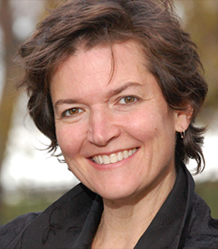
Jessica Thebus (Director of MFA in Directing) is a theater artist, director, and educator. She holds a PhD in Performance Studies from Northwestern University, and is currently Director of the Northwestern MFA Program in Directing for the Stage. She has directed and adapted plays in Chicago and nationally for twenty years, and has long associations with many Chicago theaters. At the Goodman Theatre she has directed A Christmas Carol, Buzzer by Tracey Scott Wilson, and both The Clean House and the world premiere of Stage Kiss by Sarah Ruhl. At Steppenwolf Theater Company she directed four large spectacle evenings at Millenium Park, the plays Sex With Strangers by Laura Eason, Intimate Apparel by Lynn Nottage, Dead Man’s Cell Phone by Sarah Ruhl, When the Messenger Is Hot by Laura Eason, No Place Like Home devised by the company, Lady Madeline by Mickle Maher, Sonia Flew by Melinda Lopez, and the Youth Theater program (1998-2001). Northlight Theater is also an artistic home for Jessica where she has directed eight plays and where she adapted and directed Shining Lives: A Musical which received a Joseph Jefferson award nomination for best new work. Other Chicago projects have been at Lookingglass Theater Company (In The Garden, a Darwinian Love Story by Sarah Gmitter, All Fall Down adapted from Richard Cahan’s book, and Our Town by Thornton Wilder). Favorite others include: Richard III at The Gift Theater, The Turn Of The Screw by Jeffrey Hatcher at Writer’s Theater, SALAO: The Worst Kind Of Unlucky and The Feast (Jeff award nomination for best new work) at Redmoon Theater, LATE : A Cowboy Song by Sarah Ruhl and Abingdon Square by Maria Irene Fornes at the Piven Theater, as well as the Joseph Jefferson award-winning plays Pulp by Pat Kane and Winesburg, Ohio adapted by Eric Rosen at About Face Theatre. Favorite projects nationally include: As You Like It at the Oregon Shakespeare Festival, Civil War Christmas by Paula Vogel at The Huntington Theatre, Harriet Jacobs by Lydia Diamond at Kansas City Repertory Theatre, The Oldest Boy by Sarah Ruhl at The Marin Theater Company, as well as the Oregon Shakespeare Festival’s world premiere of Welcome Home, Jenny Sutter by Julie Marie Myatt, which then moved to the Kennedy Center in Washington, D.C. Jessica is also involved in Outdoor Spectacle projects that celebrate community, joy and environmental justice—these include The Persephone Project and Art Of Spontaneous Spectacle.
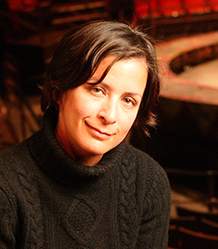
Anna Shapiro is a Tony Award-winning director and served as Artistic Director of Steppenwolf Theatre Company from 2015 to 2021, where she remains an ensemble member. She joined the Steppenwolf ensemble in 2005 and was awarded the 2008 Tony Award for Best Direction of a Play for August: Osage County (Steppenwolf, Broadway, London). She was nominated in 2011 in the same category for The Motherf**ker with the Hat (Public Theater, Labyrinth Theater). Other Steppenwolf directing credits include the world premiere production of The Minutes (also on Broadway); Mary Page Marlowe, Visiting Edna, Three Sisters, A Parallelogram, Up, The Crucible, The Unmentionables (also at Yale Repertory Theatre), The Pain and the Itch (also in New York), I Never Sang for My Father, Man from Nebraska, Purple Heart (also in Galway, Ireland), The Drawer Boy, Side Man (also in Ireland, Australia and Vail, Colorado), Three Days of Rain, The Infidel and This Is Our Youth (which transferred to Broadway). Additional Broadway credits include Of Mice and Men (with James Franco) and Fish in the Dark (with Larry David), and Off Broadway Domesticated (Lincoln Center Theater). She directed the new Broadway musical The Devil Wears Prada with music by Sir Elton John, lyrics by Shaina Taub and book by Paul Rudnick. Shapiro is a graduate of the Yale School of Drama and Columbia.
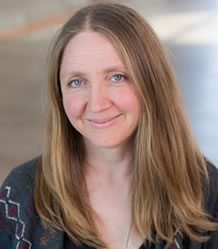
Dassia N. Posner is a theatre historian specializing in Russian avant-garde theatre, the history of directing, production dramaturgy, and world puppetry history and performance. She teaches undergraduate courses in Theatre and in Slavic Languages and Literatures and graduate courses in the MFA in Directing and the Interdisciplinary PhD in Theatre and Drama (IPTD). She is currently Director of IPTD and Vice President for Awards of the Association for Theatre in Higher Education.
Posner’s books include The Director’s Prism: E. T. A. Hoffmann and the Russian Theatrical Avant-Garde (2019: Shortlist, Prague Quadrennial Best Scenography and Performance Design Publication Award; 2016: Finalist, TLA Freedley Memorial Award); The Routledge Companion to Puppetry and Material Performance (co-edited with Claudia Orenstein and John Bell, 2014); and Three Loves for Three Oranges: Gozzi, Meyerhold, Prokofiev (co-edited with Kevin Bartig and associate editor Maria De Simone; under contract with Indiana University Press). Her web-based archive companion to The Director’s Prism features over a hundred multimedia Russian theatre sources: www.fulcrum.org/northwestern. Her current book-in-progress, The Moscow Kamerny Theatre: An Artistic History in Political Times, examines the Kamerny Theatre’s innovations and international influence in the artistic and political context of the Soviet 1920s and 30s.
Recent creative scholarship includes production dramaturgy at Steppenwolf Theatre Company for Grand Concourse and Russian Transport, as well as for Three Sisters, for which she was also Tracy Letts’s dramaturgical translator. Prior to coming to Northwestern, she was the resident dramaturg at Connecticut Repertory Theatre. She has performed as a puppeteer with First Night Boston, the Children’s Free Opera and Dance of New York, Bread and Puppet Theater, Underground Railway Theatre, the Puppeteers’ Cooperative, and Luna Theatre.
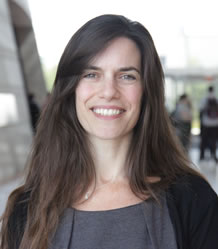
Shana Cooper is a company member at Woolly Mammoth Theatre Company in Washington, D.C., where her directing credits include The Nether and HIR by Taylor Mac. Other directing credits include The Unfortunates (A.C.T., SF); American Night, Romeo and Juliet (Yale Repertory Theatre); Straight White Men (Studio Theater); The Unfortunates (World Premiere Musical), Julius Caesar, Love’s Labor’s Lost (Oregon Shakespeare Festival); Venus In Fur (Seattle Rep, Arizona Theatre Company), The Taming of the Shrew, Romeo and Juliet, A Midsummer Night’s Dream (California Shakespeare Theater); A Midsummer Night’s Dream (Playmakers Rep); Camino Real (New York University MFA Program); Three Sisters (The Studio/New York); The Whale Play, Twelfth Night Parking Lot Project (New Theater House). Shana was the Associate Artistic Director of the California Shakespeare Theater (2000-2004), and also a Cofounder of New Theater House with Yale School of Drama alumni (2008-present). Awards include: 2014 U Grant – Funded by The Melon Foundation and Administered by TCG, 2010 Princess Grace Award, Julian Milton Kaufman Memorial Prize in Directing (Yale School of Drama), Drama League Directing Fellow, TCG Observership Grant, OSF Phil Killian Directing Fellow, G. Herbert Smith Presidential Scholarship.
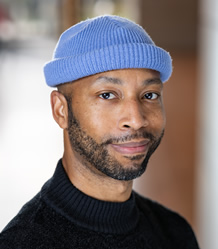 Mark H. is a director, performer, and scholar with a primary focus on physical theaters, and American and African diasporic performance. As a multidisciplinary artist, his portfolio of professional work ranges from the classical to the postmodern, from text-based to body-centric, and has been performed in spaces both traditional and unconventional. He approaches performance as a rite/right, as an art, and as a vital technology for sight, development, liberation and healing. Mark’s artistic research is concerned with retrieving, preserving and expanding African American cultural heritage, and in developing a unique and personal African American aesthetic by “remixing” ideas and practices borrowed from his various cultural lineages. Thus, he creates experiences where elements of the African, the European and the American mingle in harmonies and tensions that reflect the inherent complexity of African American existence. He is particularly interested in how these interactions play out in immersive, site-specific and participatory performance contexts.
Mark H. is a director, performer, and scholar with a primary focus on physical theaters, and American and African diasporic performance. As a multidisciplinary artist, his portfolio of professional work ranges from the classical to the postmodern, from text-based to body-centric, and has been performed in spaces both traditional and unconventional. He approaches performance as a rite/right, as an art, and as a vital technology for sight, development, liberation and healing. Mark’s artistic research is concerned with retrieving, preserving and expanding African American cultural heritage, and in developing a unique and personal African American aesthetic by “remixing” ideas and practices borrowed from his various cultural lineages. Thus, he creates experiences where elements of the African, the European and the American mingle in harmonies and tensions that reflect the inherent complexity of African American existence. He is particularly interested in how these interactions play out in immersive, site-specific and participatory performance contexts.
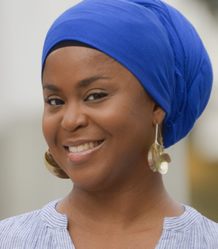
Cristal Chanelle Truscott, PhD (Associate Professor) is a culture worker, scholar, educator, playwright, director, founder of the touring ensemble Progress Theatre, and creator of “SoulWork” – a generative method for making performance, training artists, engaging communities and framing analytical research that is rooted in generations-old African American cultural practices, theories and performance traditions. She is a recipient of the Doris Duke Impact Artist Award, given to those “influential in shaping powerful creative movements in contemporary arts,” as well as the 2023 United States Artist Award, the Creative Capital Award, MAP Fund, NPN Creation Fund, and NEFA National Theatre Project grants.
As a culture worker and artist, Dr. Truscott is director of SoulWork Studio and has led Progress Theatre in using art as anti-racism to connect communities via a broad, deeply linked grassroots network fostered nationally and internationally. She writes a capella musicals called “NeoSpirituals” that span and straddle time between histories and the present to explore identities, inheritances/legacies and cultural movements to encourage connection, consciousness, and healing. These include PEACHES (in Plays from the Boom Box Galaxy, TCG Books), ‘MEMBUH, and The Burnin’. Plantation Remix, her current work-in-progress, is a site-responsive NeoSpiritual to radically re-imagine the separatist genre of heritage tourism by rehearsing a contemporary, multi-cultural, future-building “afterlife” for historic sites related to slavery in the U.S. Her plays blend pop culture and academic conversations, fusing genre from Negro Spirituals and Folklore to Blues, R&B, and Hip Hop to produce performances that engage communities across race, class, gender, and spiritual identity.
Dr. Truscott’s scholarly research investigates and excavates oral traditions, cultural knowledge and community practices as performance methodology for use by artists/practitioners, educators, community-invested programs and arts organizations seeking to offer inclusive, dynamic artist training, curricula and/or programming. As a performance studies scholar, she researches and writes about spiritual diversity in African American Theatre and the arts’ essential role in movements for liberation using the theory she developed called the “Cultural Conservatory.” She has served as assistant editor of the performance journal TDR: The Drama Review; associate editor for Azizah Magazine; and on the editorial boards of the publications Women and Performance: A Journal of Feminist Theory and Black Masks Magazine.